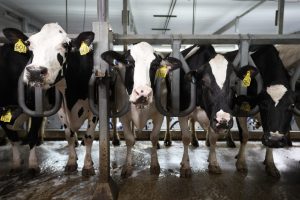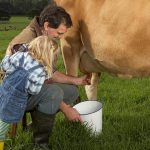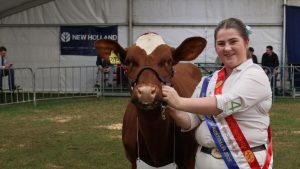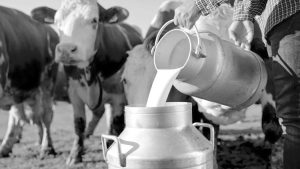
But artisan producers have welcomed the restrictions, saying it is an opportunity for cheesemakers to shed a “cultural cringe” and proudly promote Australian-made products.
European trade negotiators want to protect almost 60 different types of cheeses with geographical indicators as part of a free trade deal with Australia.
While in many cases these refer to the use of specific locations where the cheese originated from and will allow the generic use of names such as brie or camembert to continue, a handful of products such as feta, gruyere and gorgonzola are under threat.
Olivia Sutton, who owns specialist cheese shop Harper & Blohm in Melbourne’s Brunswick, said Australian consumers had a snobbish belief that European cheeses were superior but believed ultimately they would adapt, just as they did when the use of the word champagne was banned.
“People have a perception that buying a French brie is better than buying an Australia brie but there are some good Australian cheeses coming through, it’s just taking time,” she said.
“If you look at a jar of feta and it was called Gibson’s Road feta and suddenly it was called Gibson’s Road marinated goat’s cheese, I don’t think you’d notice.”
The Australian Dairy Industry Council, which represents both producers and major processors, warned products with total sales values of more than $650 million were at risk because of the proposed restrictions.
Research conducted on behalf of the council estimates the direct impact of strict enforcement of geographical indicators on dairy manufacturers could cost them between $70 million and $90 million in lost sales, rebranding and repackaging products and educating consumers in the first few years of an EU FTA.
Australian Dairy Farmers chief executive David Inall said the industry was also alarmed by the EU’s clampdown on evocation.
“Manufacturers of cheese products won’t be able to use related imagery like flags or colours or writing to connect it back to the original location,” he said.
Mr Inall said the production of a wide range of cheeses reflected Australia’s migrant history, with many producers bringing their skills and methods from Europe to establish flourishing businesses that created jobs.
Australian Specialist Cheesemakers Association secretary Alison Lansley said the changes would mostly affect mass-produced cheeses sold in supermarkets.
She said artisan producers had already moved away from using European names, in a sign of maturity for the local industry.
She gave the example of how one Gippsland producer called a Roquefort- style cheese Venus Blue, which took its name from a local bay.
“To me it’s a bit of a cultural cringe that people want to use those European names. It’s relying on a European name to sell a product whereas we should be able to sell it under its own local name,” she said.
Ms Lansley agreed feta would be the most problematic cheese name to resolve.
She said the name “feta” was not really a true geographical indicator linked to a specific location in Greece, as the word meant “sliced”, while Bulgaria and Macedonia also tried to claim its provenance. It was also a relatively simple cheese to produce.
Ms Lansley said she understood Europe was insisting that “feta” could not be used at all, even as “Australian feta” or “feta-like”.
“Feta has become common use. What would you call it if not feta?” she said.

























